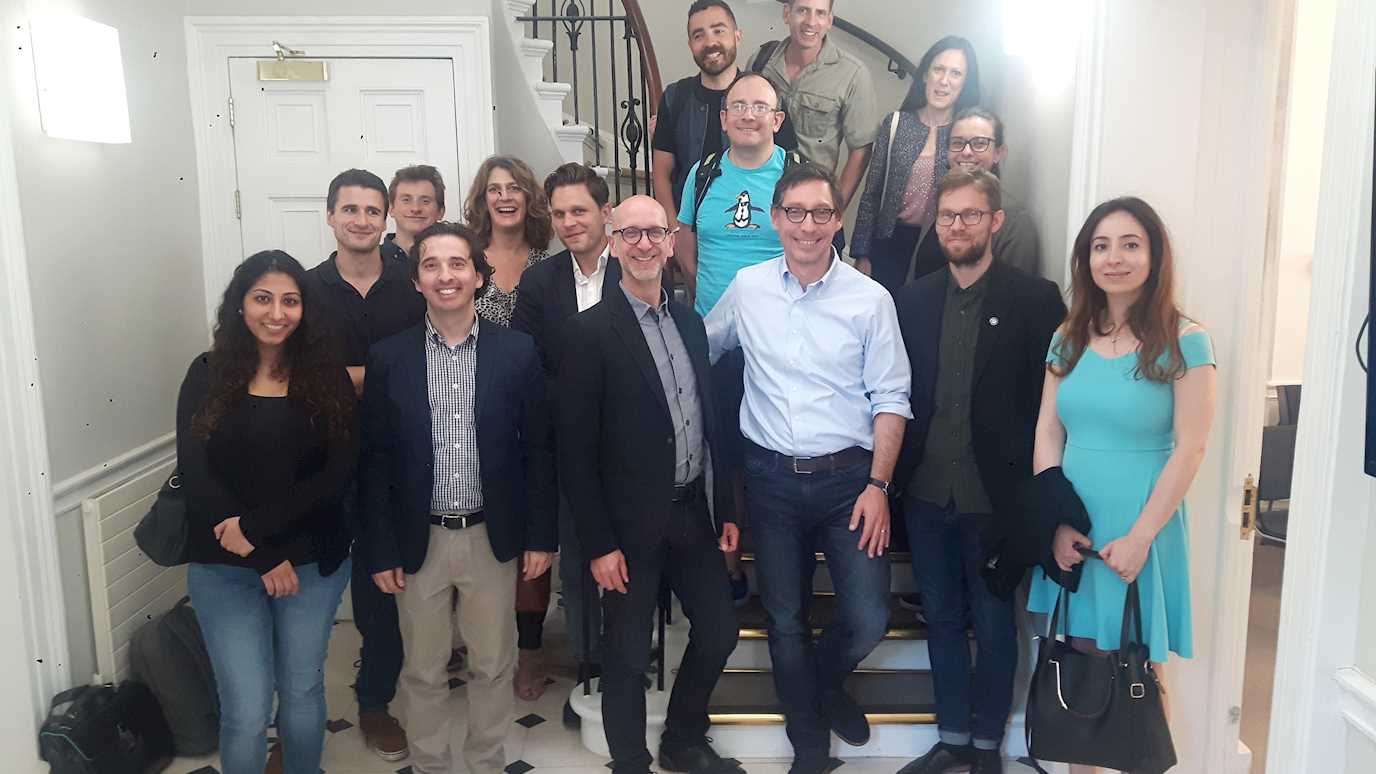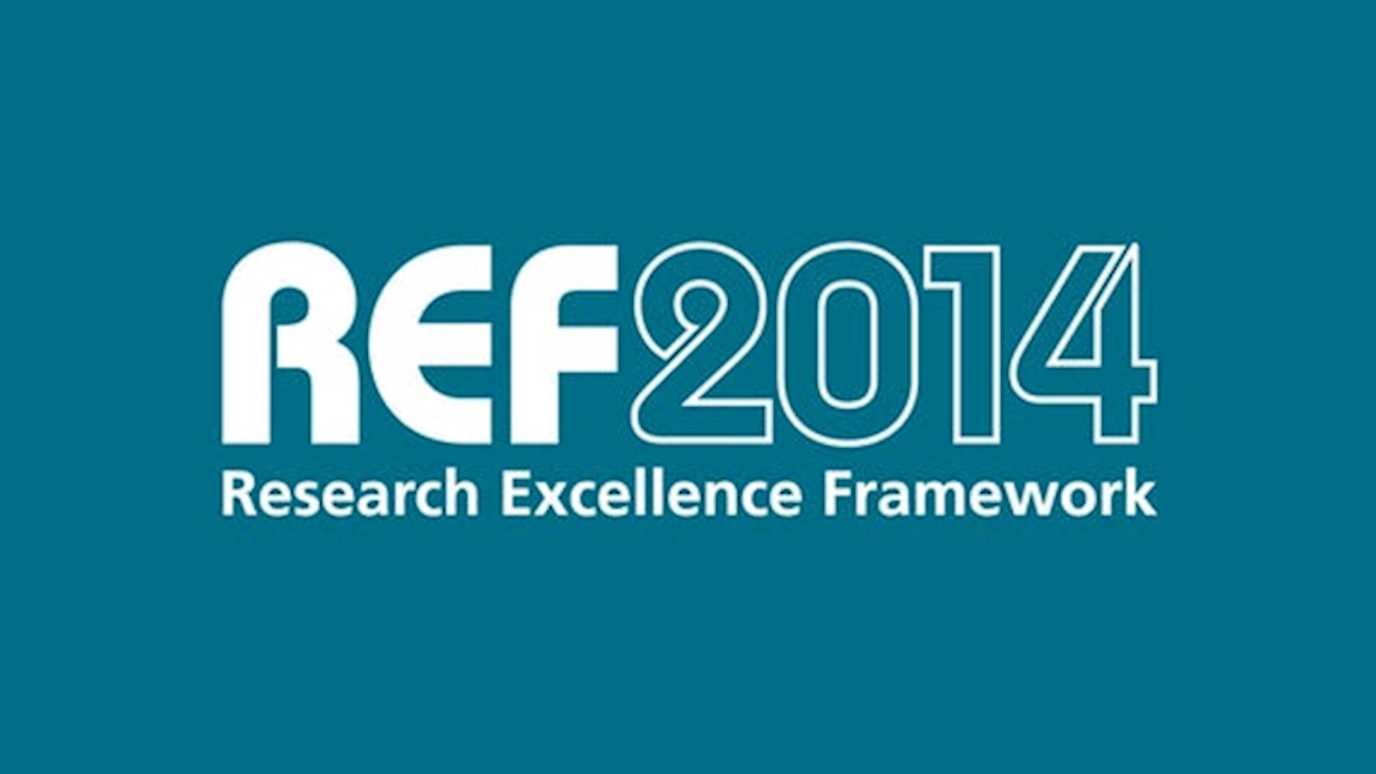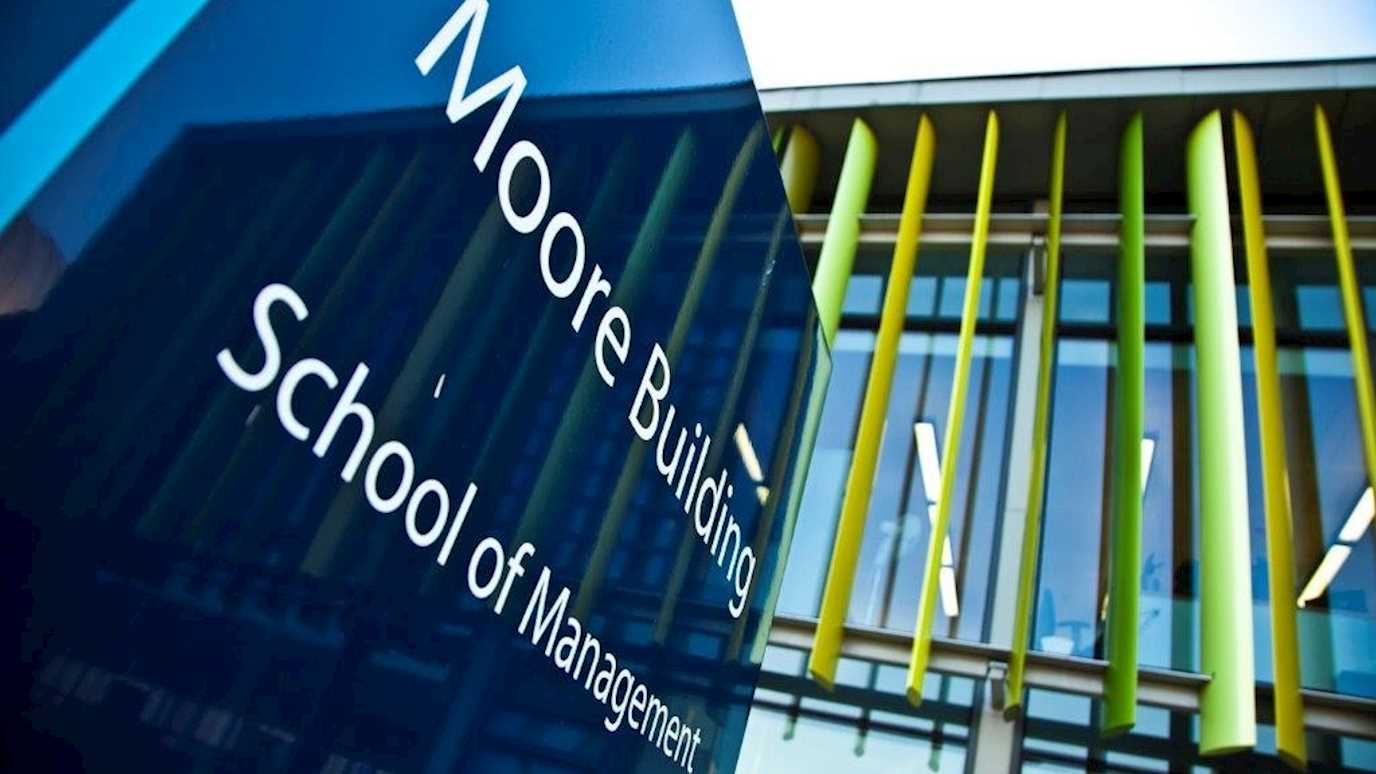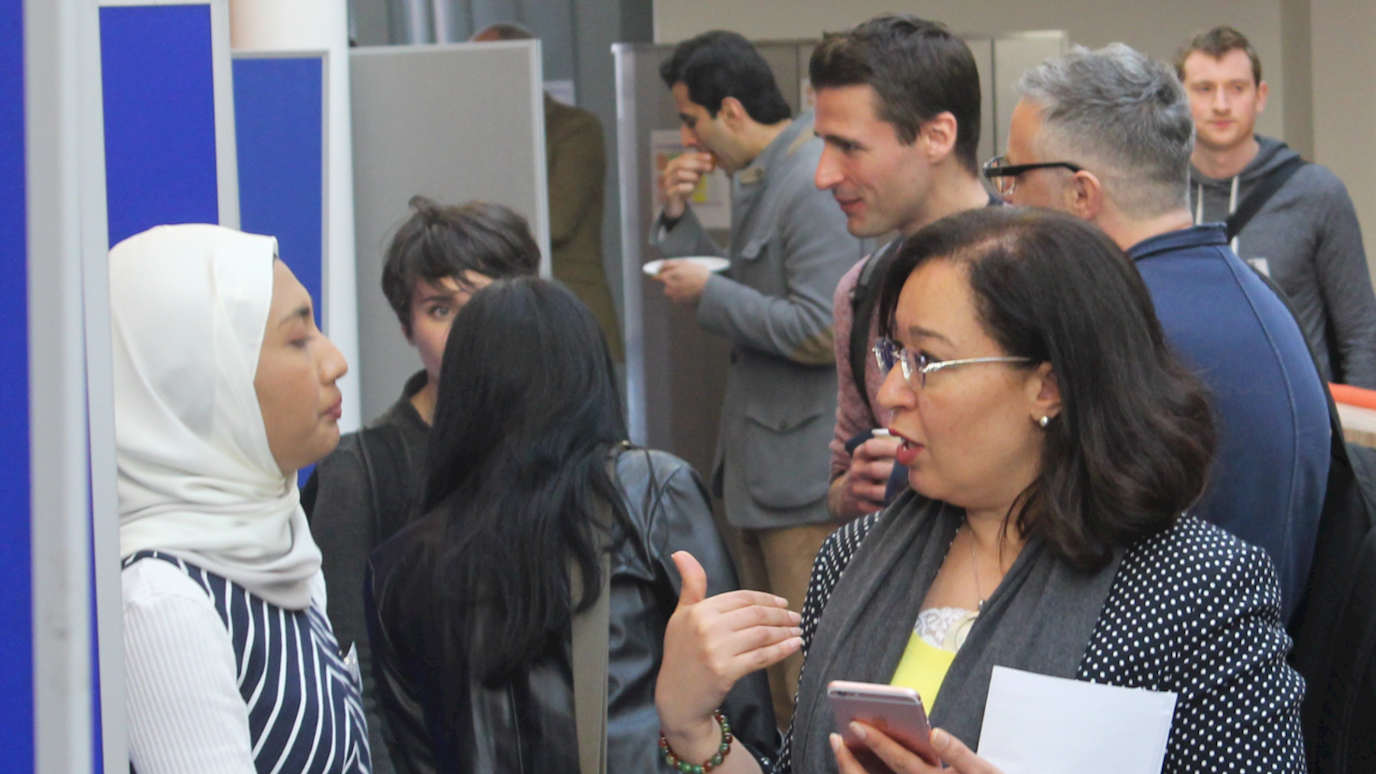The Centre for Research into Sustainability (CRIS) is a multidisciplinary, international group of researchers and educators at Royal Holloway, University of London, UK. We are actively engaged with the understanding of social/ethical, economic and environmental sustainability in contemporary society.
We understand sustainability in broad terms as relating to economic, social/ethical and environmental perspectives. We do this through research, teaching, and collaboration with external organisations.
Our purpose, ultimately, is to advance scholarship and contribute to positive social change in terms of the contemporary challenges of poverty alleviation, social injustice and climate change.
We are world-leading in three research areas:
- Accounting for Sustainability
- Responsible Consumption
- Responsible Business
Our goal is to advance scholarship and to contribute to positive social and environmental change. To this end, our current focus is on four cross-cutting themes:
- Gender and Social Change
- Global Impact Chains
- Precarious work and Modern Slavery
- Alternative Economies
We hold regular seminar series and external speaker events. Take a look here for more events.
Our flagship courses are the postgraduate and undergraduate levels through the MSc Sustainability & Management and the BSc Management with Corporate Responsibility and the BSc Management with Corporate Responsibility with a Year in Business.
Key contacts
Dr. Susan O'Leary - Co-Director
Susan's research interests primarily relate to the use of accounting and accountability practices within non-governmental organisations (NGOs). She is particularly interested in the monitoring, evaluation and impact assessment tools used within NGOs, and how they are used to derive outcomes as diverse as accountability to financial donors to the fulfilment of social development obligations at a grassroots level. On a broader level, She is also interested in a range of theoretical perspectives that highlight accounting and accountability as a pluralistic and dialogic practice. Her research employs a critical and interdisciplinary style with an emphasis on case-based, qualitative and at times, ethnographic research methods.
Dr. Martina Hutton - Co-Director
Martina's research interests lie at the intersection of transformative consumer research and critical marketing. More specifically she focuses on consumer poverty, vulnerability and marketplace stress and exclusion. With a PhD in Equality Studies from the internationally renowned UCD School of Social Justice, she is an experienced qualitative PEFT researcher (Participatory, Emancipatory, Feminist, Transformative), actively engaging with community stakeholders and diverse groups of people experiencing economic difficulties and social/material marginalisation [poverty, hunger, post-prison socio-material experiences].
Our research
Check out all our members' publications and projects here, or view the short videos linked below of some of our members specific areas of research:
Simon - Social Responsibility and Ethics within Organisations
Milena - Idiosyncratic Deals
Jose - How are Digital Divides and Sustainability Issues related?
Alex - Emergent Consumer Lifestyle in an Era of Uncertainty
The Centre for Research into Sustainability (CRIS) is a multidisciplinary, internationally-leading group of researchers and educators at Royal Holloway, University of London, UK. We are world-leading in three research areas, which form the basis of our expertise.
1. Accounting for Sustainability
This work covers topics of accountability, voluntary corporate reporting, sustainability accounting, and governance.
2. Responsible Consumption
This work covers topics of ethical consumption, marketing ethics, sharing and alternative economies.
3. Responsible Business
This work covers the evolution of corporate social responsibility and social and environmental sustainability, equality, diversity and inclusion, governance, lobbying, and alternative forms of organizational responsibility, including NGOS, SMEs and cooperatives.
In addition, our current cross-cutting critical agendas are:
Gender and Social Change
Keywords: Gender, masculinities, feminism, family roles, gendered commodity chains, representation of women in advertising.
Members: Mikael Andehn, Andreas Chatzidakis, Laura Spence, , Pauline Maclaren, Divya Patel, Katherine Brickell.
Global Impact Chains
Keywords: Supply chains, value chains, environmental and social sustainability, developing country contexts, migration, immigration.
Members: Helen Tregidga, Susan O’Leary, Sigrun Wagner, Nana Zhao, Laura Spence, , Leonardo Rinaldi, Maureen Ayikoru, Laurie Parsons, Katherine Brickell, Darla Dore, Vera Hoelscher.
Precarious work and Modern Slavery
Keywords: Precarity, bonded labour, trafficking, stakeholder voice, regulation, inclusion and diversity, impacts of COVID-19.
Members: Andreas Chatzidakis, Laura Spence, Anica Zeyen, Nceku Nyathi, Katherine Brickell, Chris Rees, Yingqin Zheng.
Alternative Economies
Keywords: Subcultures, alternative living, sharing economy, anti-capitalism, afri-capitalism, social movements, digital nomads.
Members: José-Rodrigo Córdoba-Pachón, Mikael Andehn, , Alan Bradshaw, Vera Hoelscher, Shweta Chowdhary, Nceku Nyathi.
PhDs with CRIS
We are actively seeking high quality PhD students to work with CRIS members on sustainability-related topics. Please see individual staff research pages for an indication of their key interests and contact us directly to discuss further. General information on applying to study a research degree at Royal Holloway can be found here.
Partnerships and Collaborations
We work alongside a number of businesses, NGOs, research centres and universities. We are currently partnered with CBS Sustainability, the Copenhagen Business School sustainability centre, and Heathrow Airport. For more idea of our research collaboration, please see the NGOS, Business and Policymakers tab.
Our people

Our members come primarily from the School of Business and Management and the Department of Geography. CRIS works alongside the Sustainability, Responsibility & Ethics group in the School of Business and Management and the Politics, Development & Sustainability group in the Department of Geography, as well as collaborating with other colleagues from around the College.
Core members
|
Dr Giulia Achilli |
Prof. Elena Giovannoni |
|
Dr Peter Adey (Geography) |
Dr Vera Hoelscher |
|
Dr Mikael Andehn |
Prof. Douglas Holt |
|
Prof. Gloria Agyemang |
Dr Chris Chan |
|
Dr Kerry Howard |
Prof. Chris Rees |
|
Dr Maureen Ayikoru |
Dr Nceku Nyathi |
|
Prof. Alan Bradshaw |
Prof. Pauline Maclaran |
|
Professor Katherine Brickell (Geography) |
Professor James Sloam |
|
Dr Donna Brown |
Dr Saffet Uygur |
|
Dr Xinying Yu |
Dr Susan O'Leary |
|
Prof. Andreas Chatzidakis |
Dr Leonardo Rinaldi |
|
Dr Jenni Cole (Geography) |
Prof. Laura J. Spence |
|
Dr José-Rodrigo Córdoba-Pachón |
Prof. Helen Tregidga (Co-Director) |
|
Dr Mike Dolton |
Dr Sigrun M. Wagner |
|
Dr Anica Zeyen |
Dr Ankit Gaur |
|
Dr Nana Zhao |
Dr Rebecca Bolt |
|
Prof. Elizabeth Schafer (Drama) |
Dr Martina Hutton |
|
Dr Tega Akpobi |
Dr Simon Oldham |
|
Dr Hyemi Shin (PRME Co-ordinator) |
Dr Ran Bhamra |
|
Dr Thomas Wainwright |
Anabel Gutierrez Mendoza |
|
Dr Paul Haynes |
Professor Chris Hackley |
|
Professor Christopher Napier |
Dr Laurie Parsons |
|
Professor Michael Gold |
Dr Yingqin Zheng |
Academic visitors within the 'Distinguished Scholar' programme
|
Prof. Andy Crane (2014) |
Prof. Jan Bebbington (2015) |
|
Prof. Ralph Hamman (2016) |
Prof. Mette Morsing (2016) |
|
Prof. Joseph Sarkis (2017) |
Prof. Michelle Greenwood (2019) |
|
Dr Oana Branzei (2020) |
Prof. Sankar Sen (2021) |
Associate members
|
Dr David Bevan |
Dr Mikko Laamanen (Emlyon Business School, France) |
|
Dr Graca Brightwell |
Prof. Catherine Liston-Heyes |
|
Dr Robert Charnock (Birmingham Business School) |
Dr Abby Efua Hilson (Kent Business School) |
|
Dr Massimo Contrafatto (University of Sussex) |
Dr Vivek Soundararajan (University of Birmingham) |
|
Prof. Nicole Darnall (Arizona State University) |
Dr Chijioke Uba (University of Northampton) |
|
Dr Mary Dengler |
Dr Sarah Glozer (University of Bath) |
|
Dr Diego Vasquez-Brust (University of Portsmouth) |
Dr Lauren McCarthy (Bayes Business School) |
|
Dr Chika Oka (Université de Paris-Es) |
Prof Giana Eckhart (Kings College London) |
|
Dr Katharina Husemann (Kings College London) |
|
PhD student members
|
Ghadah Alarifi |
Jongsoo Kim |
|
Rabih Aridi |
Ludovic N’Doua |
|
Bernie D'Angelo Asher |
Francisca Sassetti |
|
Caroline Neriamparampil |
Divya Patel |
|
Shweta Chowdhary |
Zoe Raven |
|
Emilio Costales |
Joshua Sandin |
|
Darla Dore |
Shia Wang |
|
Shabnam Emami |
Xiaojian Xing |
|
Mohammed Sharik Essa |
Okeoghene Sim-Ifere |
|
Nicole Hansen |
Collaborating with Business, NGOs and Policymakers
The Centre for Research into Sustainability is a multinational and interdisciplinary research-based group with a wealth of knowledge and experience on organisational responses to sustainability challenges. With expertise in sustainability relating to accounting, supply chains and logistics, corporate social responsibility and business ethics as well as environmental issues, it is a privilege for us to work in partnership with other organisations. We have experience working with small and medium sized enterprises, social enterprises, multinational corporations and the public sector. Our work is always rooted in our internationally renowned scholarship. Examples of our work include:
Case Study 1: Consumer Perspectives on Modern Slavery
It is estimated that up to 1,243,400 people are modern slaves across Europe, working in industries such as domestic work, agriculture, restaurants/food service, and the sex trade. Within the UK, the introduction of the “Modern Slavery Act” in 2015 has been a key step in fighting contemporary slavery. However, the act explicitly relies on “consumers and civil society” for its enforcement. Consumers are assumed to monitor modern slavery statements and reward/penalise companies accordingly (e.g., Nolan and Bott, 2018), an expectation that has been unprecedented in terms of UK legislation. Meanwhile there is a surprising lack of consumer research and there is no governmental body set to enforce compliance with the act.
Emerging research by Professor Andreas Chatzidakis, alongside Professor Deidre Shaw (University of Glasgow) and Dr Michal Carrington (University of Melbourne) on consumer understandings and responses to modern slavery addresses this gap by both exploring and influencing consumer attitudes and behaviour. Being the first of its kind in the UK, it aims at impacting upon business best practices, media campaigns by governmental actors and NGO initiatives.
The research has been part-funded by the British Academy/Leverhume Small Research Grants scheme (£9,700) and has been already presented to a variety of key business, NGOs and governmental stakeholders.
Case Study 2: Re-Fashioned
From September 2020, CRIS members Katherine Brickell and Lauren McCarthy, alongside Sabina Lawreniuk (The University of Nottingham) and the Cambodia Development Research Institute are leading original longitudinal research to track and amplify the experiences of over 200 women garment workers in Cambodia through the pandemic. The ReFashioned Project, funded by GCRF/UKRI , is documenting and learning from women’s efforts to navigate the financial repercussions of COVID-19 on their home lives and livelihoods across different phases of the pandemic, from the immediate crisis to its aftermath. The project is working with fashion brands, the Cambodian government and local unions to generate ideas on how to ‘stitch back better’ the Cambodian garment industry.
Case Study 3: Scale Matters: Scalability of Business Case Sustainability Initiatives in the Garment Industry
CRIS member Chika Oka, alongside Niklas Egels-Zandén (University of Gothenburg), Shahidur Rahman (BRAC University) and Rachel Alexander (LSE) report on why social and environmental sustainability initiatives designed to incentivise garment producers by presenting win-win business cases have not scaled up to make widespread impact. Commissioned by the Laude Foundation (formerly the C&A Foundation), they interviewed representatives from garment brands and retailers, producers, and programme implementers. Their report scrutinises the design of business case sustainability initiatives, considers various scaling challenges, and presents recommendations to help scale these initiatives as well as to make greater impact on sustainability in the global garment industry.
Case Study 4: Towards Democratic and Sustainable Business: Possibilities for Corporate Governance Reform
CRIS member Chris Rees and David Offenbach (Simons Muirhead & Burton LLP) worked with Labour Business to produce a report discussing potential policy reforms relating to shareholders, directors, and employees, as well as broader issues of regulation and enforcement. As Covid-19 has shown, governments in the future will have to accept a more active role in the economy. In this context, the regulatory framework for corporate governance will need to be adapted to support economic growth and encourage responsible business practices. Their new report for Labour Business provides a route for how the Labour Party in office might begin to bring this about.
Case Study 5: Improving small business social responsibility
CRIS member Laura Spence is the leading voice on social responsibility in small and medium sized enterprises, most recently providing a report commissioned by the ILO Global Business Network on Forced Labour. Her British Academy funded project on ‘Combatting modern slavery through business leadership at the bottom of the supply chain’, alongside Andrew Crane, Vivek Soundararajan, Michael Bloomfield (Bath University) and Genevieve LeBaron (University of Sheffield) built a dialogue with UK government representatives in India where the research will fit into a wider discussion on modern slavery.
Education and training
Our flagship courses are the postgraduate and undergraduate levels through the MSc Sustainability & Management and the BSc Management with Corporate Responsibility and the BSc Management with Corporate Responsibility with a Year in Business.
In addition to our specialised sustainability programmes, CRIS members and colleagues also offer sustainability-related courses on a wide range of courses, working towards sustainability being embedded across the curriculum. These include:
Undergraduate level
- Foundations for Responsible Business
- Marketing Ethics and Society
- Responsible Entrepreneurship and Innovation
- Business, Politics, and Society
- Business and the Natural Environment
- Accounting for Corporate Accountability
- Responsible Business in Context
Postgraduate level
- Project Work for Managers 1: Sustainability and Societies
- Management in Context
- Ethics and Social Entrepreneurship
- Sustainability Accounting
Students enrolled on the MSc Sustainability and Management course will also take courses offered by the Department of Geography.
Principles of Responsible Management Education
The School of Management, Royal Holloway, University of London, has been a signatory of the United Nations Principles of Responsible Management Education since 2008.























